In Vietnam: Farmers Evaluate Wild Rice-derived Lines
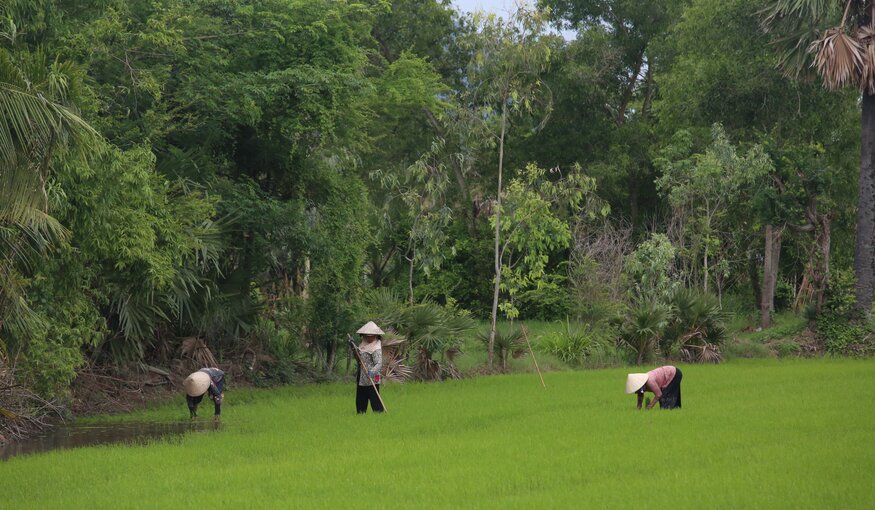
31 July 2019
We recently visited our Crop Wild Relatives partners at the Mekong Delta Development Research Institute, Can Tho University, in Vietnam. Professor Huynh Quang Tin is leading a participatory plant breeding (PPB) initiative where 13 farmer collectives, known as “Seed Clubs”, are evaluating wild rice-introgressed lines.
In our week-long journey across the Mekong Delta, we were welcomed by representatives from four Seed Clubs in their homes. “It was inspiring to meet these farmer-breeders, who are proactively developing – and releasing – their own rice varieties,” said Ben Kilian, Senior Scientist at the CropTrust.
“Walking through those perfectly kept on-farm trials, it was hard to imagine that those rows of rice have a little bit of wild in them.”
In fact, these introgressed lines are the product of the CWR Project’s pilot pre-breeding efforts on rice, where Cornell University and IRRI worked with crosses between four accessions of the wild rice cousin Oryza rufipogon L. (from four different countries) and elite Asian rice variety – Oryza sativa IRRI 154. And today, farmers in Vietnam are selecting the most promising materials in their on-farm trial plots.
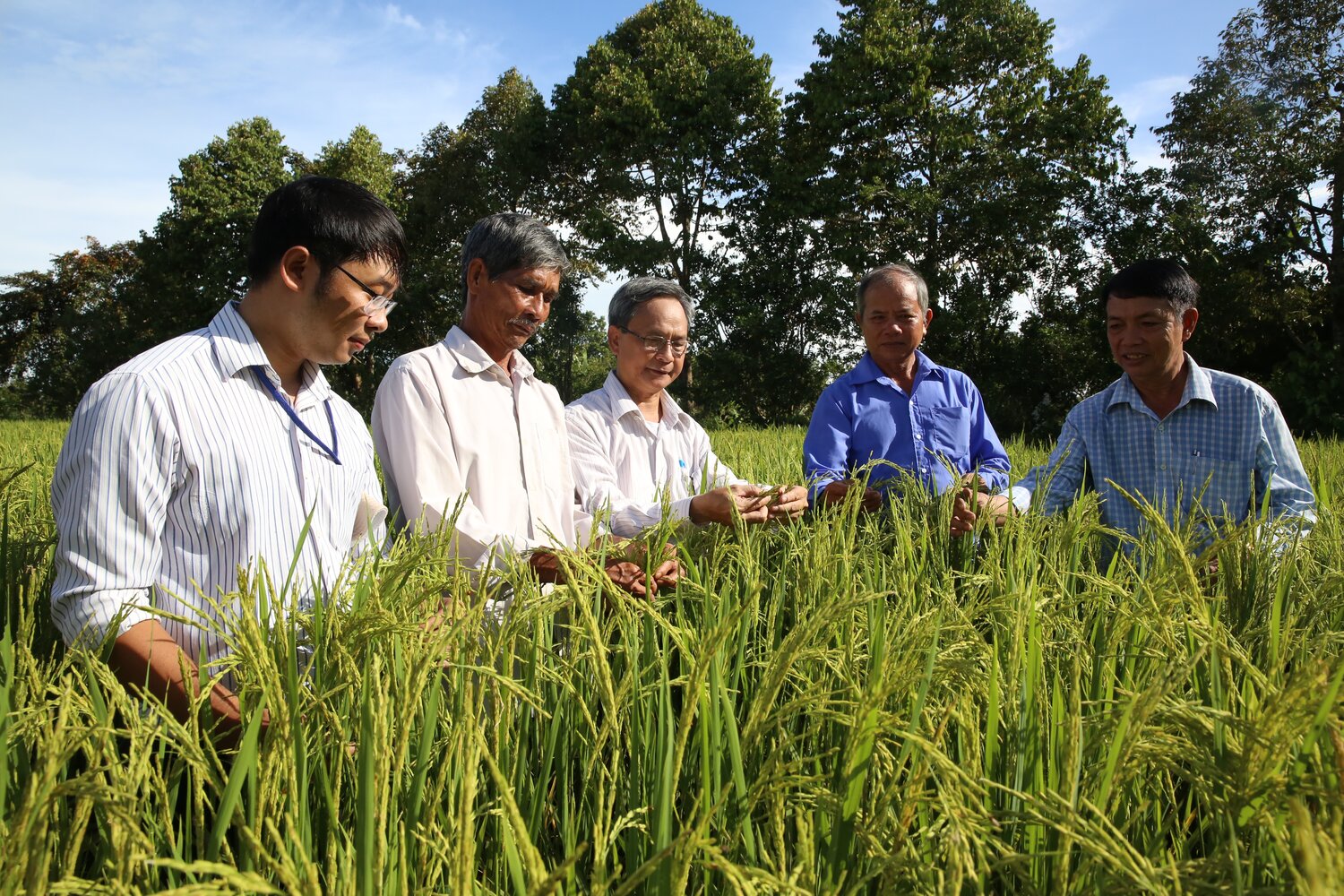
Farmers from the Long Binh Seed Club discuss their on-farm CWR introgressed rice trials with Professor Huynh Quang Tin (center), from the Mekong Delta Development Research Institute, and leader of the Crop Wild Relatives Project’s participatory plant breeding (PPB) initiative in Vietnam. Photo: L.M. Salazar
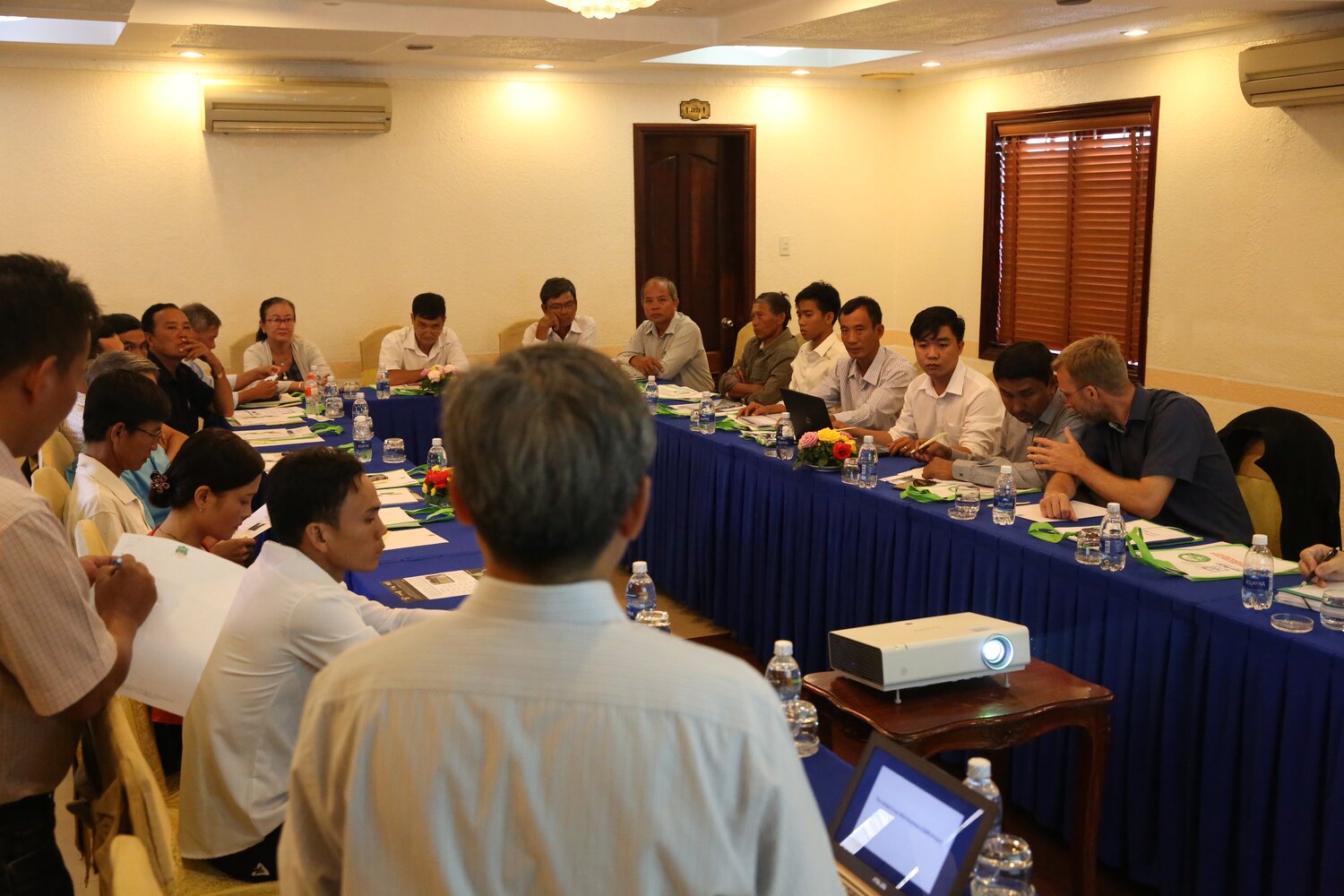
In a meeting organized by our Crop Wild Relatives partner, Professor Huynh Quang Tin, from the Mekong Delta Development Research Institute, representatives from 13 Seed Clubs (eight provinces) discussed the latest results of their rice pre-breeding trials – challenges faced, outcomes from the first crop cycle, and the selection of the most promising lines. “It was wonderful to meet these farmer-breeders who are selecting new materials that can thrive in local conditions and benefit the whole region,” said Ben Kilian, Senior Scientist at the Crop Trust. Photo: L.M. Salazar
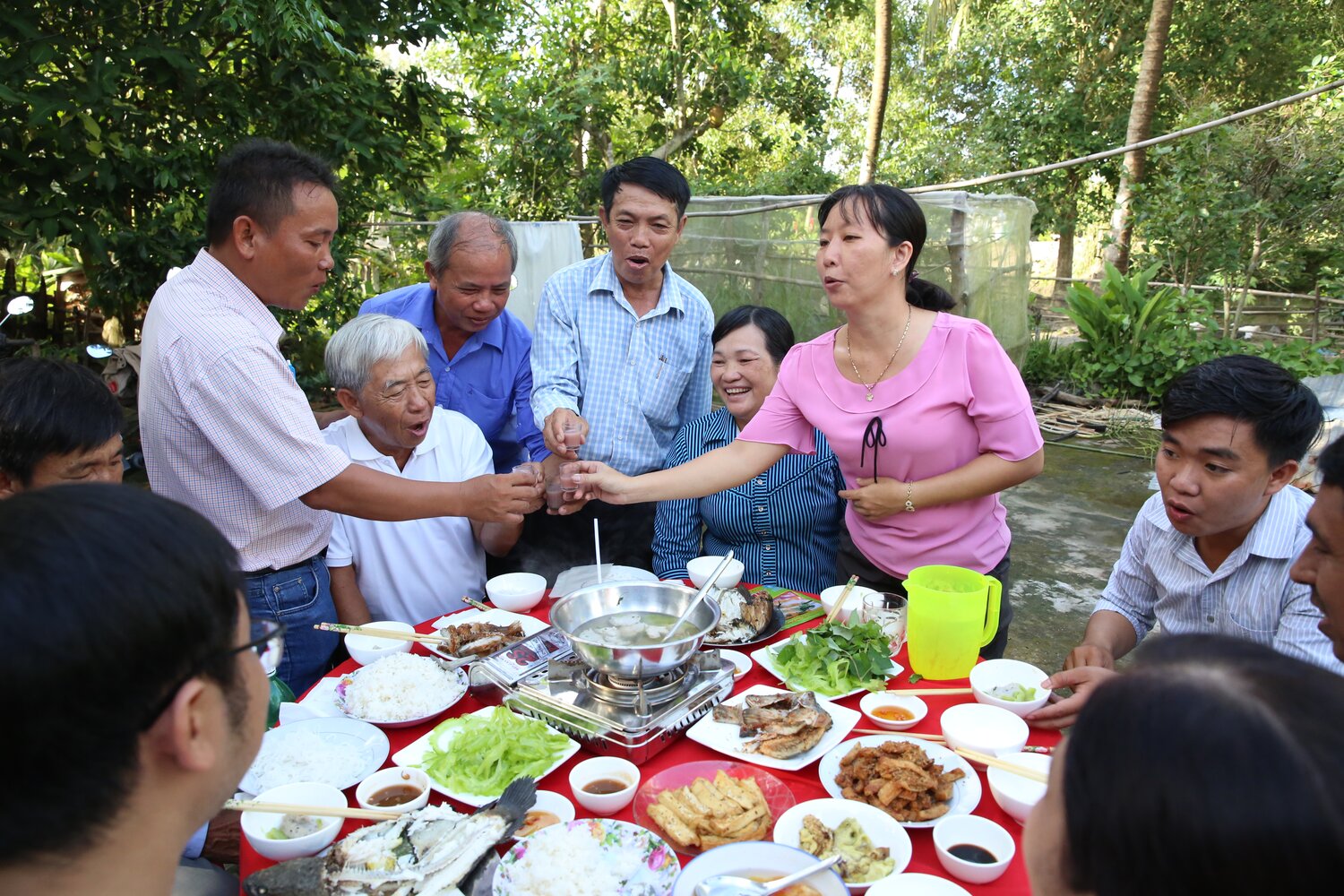
A toast with rice wine! To new friends and collaborators, and to what farmers in the Mekong Delta hope will soon be new rice varieties that have a little wild in them. This scene, shot at the end of our first day in Vietnam, captures a little of the joy and generosity (and delicious food!) of all those who welcomed the Crop Wild Relatives Project guests to the region. Photo: L.M. Salazar
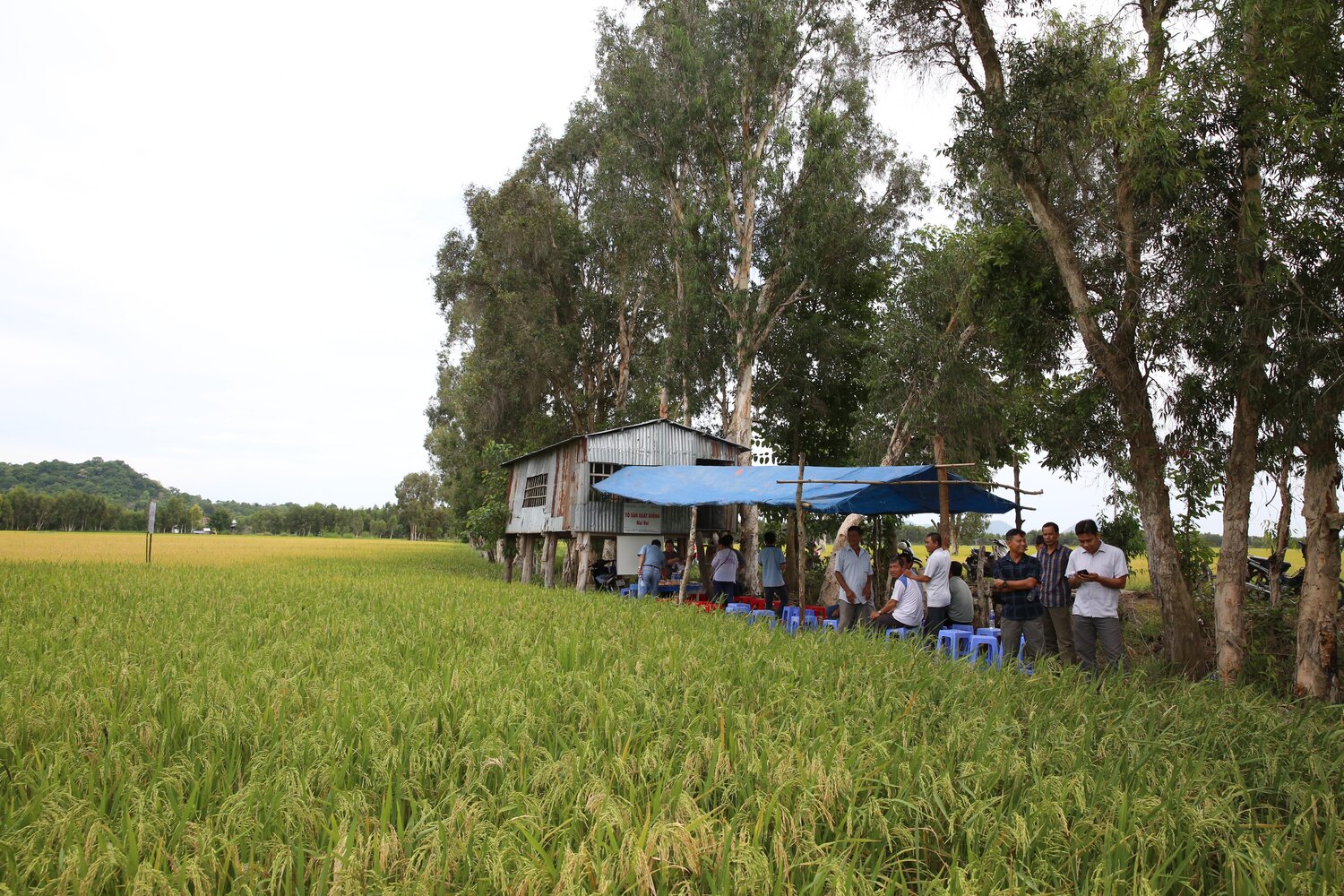
Led by Crop Wild Relatives rice pre-breeding leader Professor Tin, Ben Kilian (Crop Trust); Venu Ramaiah (IRRI); and Åsmund Bjornstad (NMBU), visited the Nui Voi Seed Club’s on farm trial, where farmers have selected the most promising lines of the first harvest, based on heat-resistance, number of panicles, resistance to Blast disease and short-cycle duration. Photo: L.M. Salazar
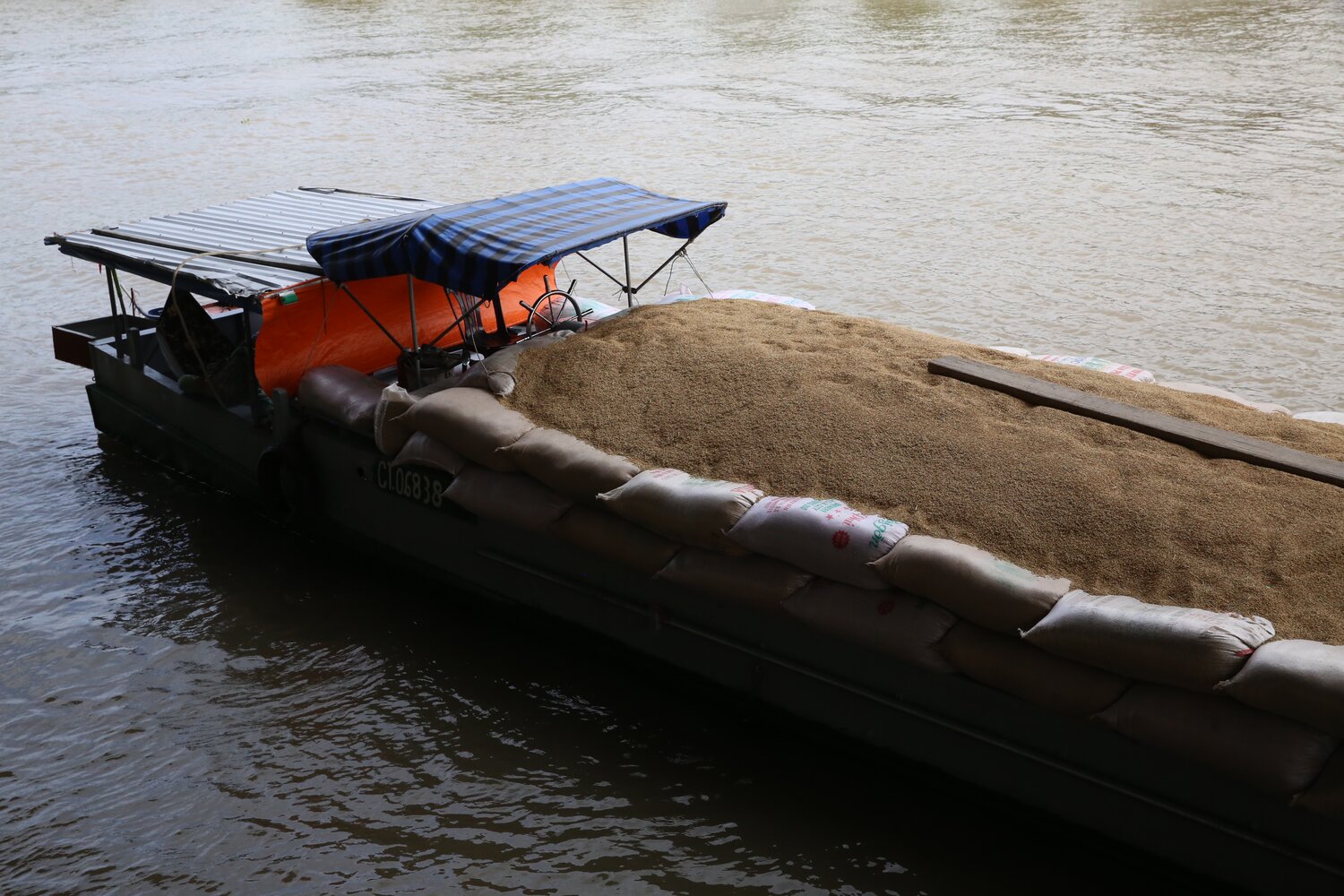
“In Vietnam, roughly 73% of cargo tonnage and about 27% of passengers travel by water annually,” says the Mekong River Commission. To better understand the role rice plays in the Mekong Delta, Ben Kilian, Crop Trust; Venu Ramaiah, IRRI; and Åsmund Bjornstad, Norwegian University of Life Sciences: NMBU, visited the rice milling corporation, Phat Tai, LTD, which owns five mills located at the edge of the Mekong River. Photo: L.M. Salazar
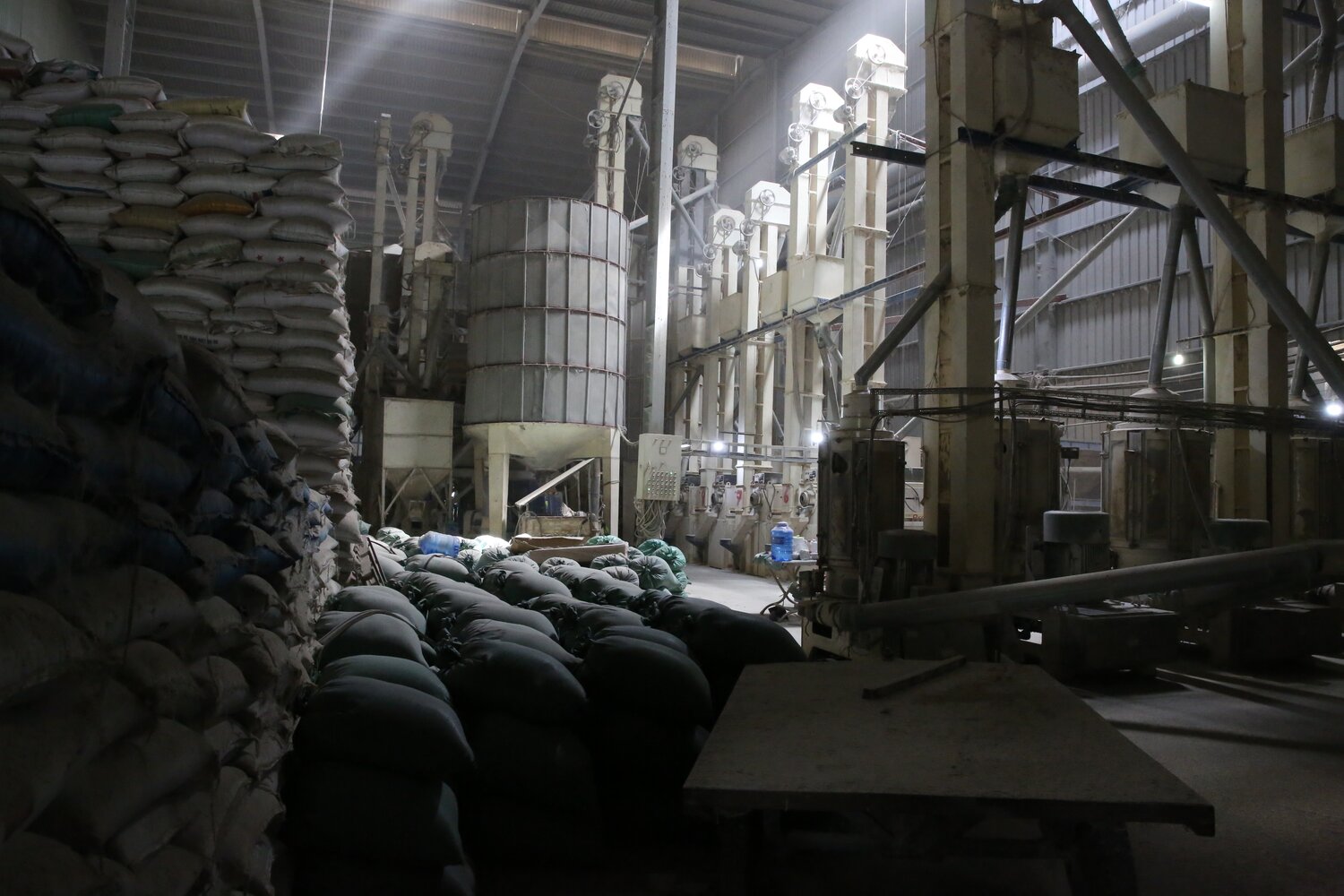
To better understand the role rice plays in the Mekong Delta, Ben Kilian, Senior Scientist at the Crop Trust; Venu Ramaiah, Genebank Manager at IRRI; and Åsmund Bjornstad, from the Norwegian University of Life Sciences: NMBU, visited the rice milling corporation, Phat Tai, LTD, which owns five mills that are located at the edge of the Mekong River, used to transport rice in and out of the region. Photo: L.M. Salazar
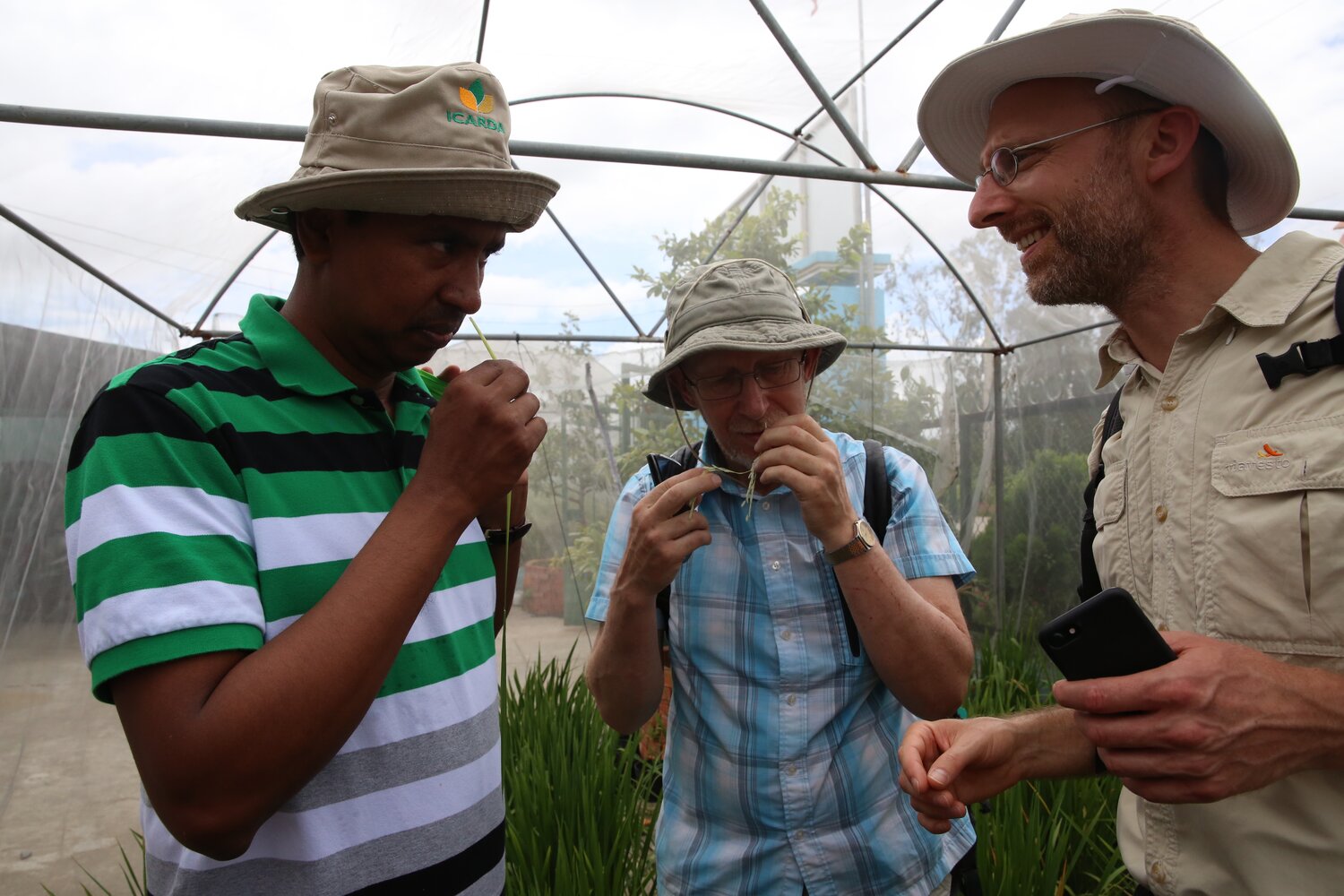
Left to Right: Venuprasad Ramaiah, Genebank Manager at IRRI, Åsmund Bjornstad, from the Norwegian University of Life Sciences: NMBU, and Ben Kilian, Senior Scientist at the Crop Trust, who recently visited our Crop Wild Relatives partners at the Mekong Delta Development Research Institute, Can Tho University, in Vietnam. Pictured here, the three visitors are intrigued by new lines of aromatic rice being developed by farmer-breeders from the Dinh An Seed Club in the Dong Thap province of the Mekong Delta. Photo: L.M. Salazar
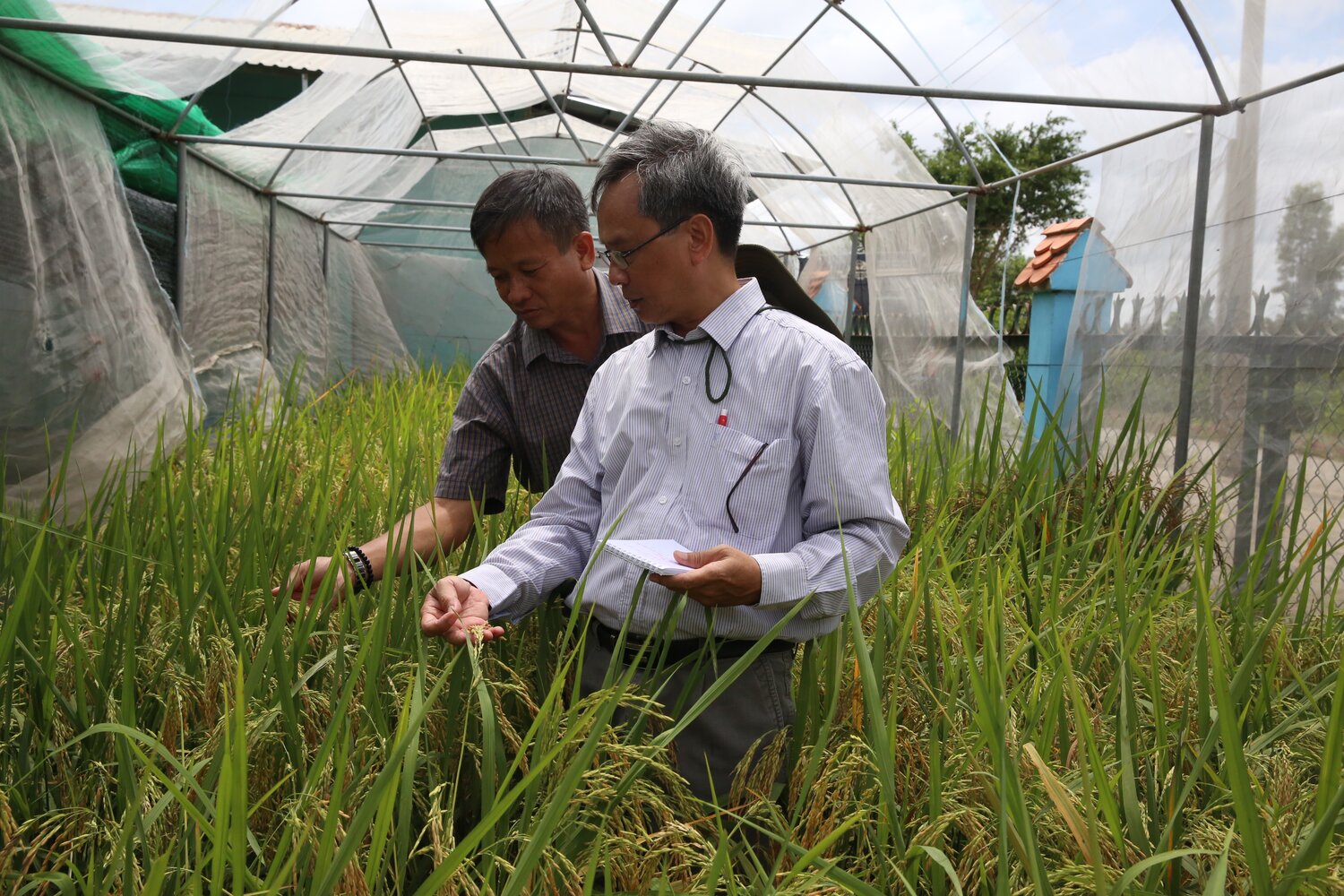
Professor Huynh Quang Tin, from the Mekong Delta Development Research Institute, Can Tho University, in Vietnam, and Crop Wild Relatives rice pre-breeding project leader, examines new lines of rice developed by Mr. Nguyen Anh Dung (Left), Seed Club Leader of the Dinh An Seed Club in the Dong Thap province of the Mekong Delta. Photo: L.M. Salazar
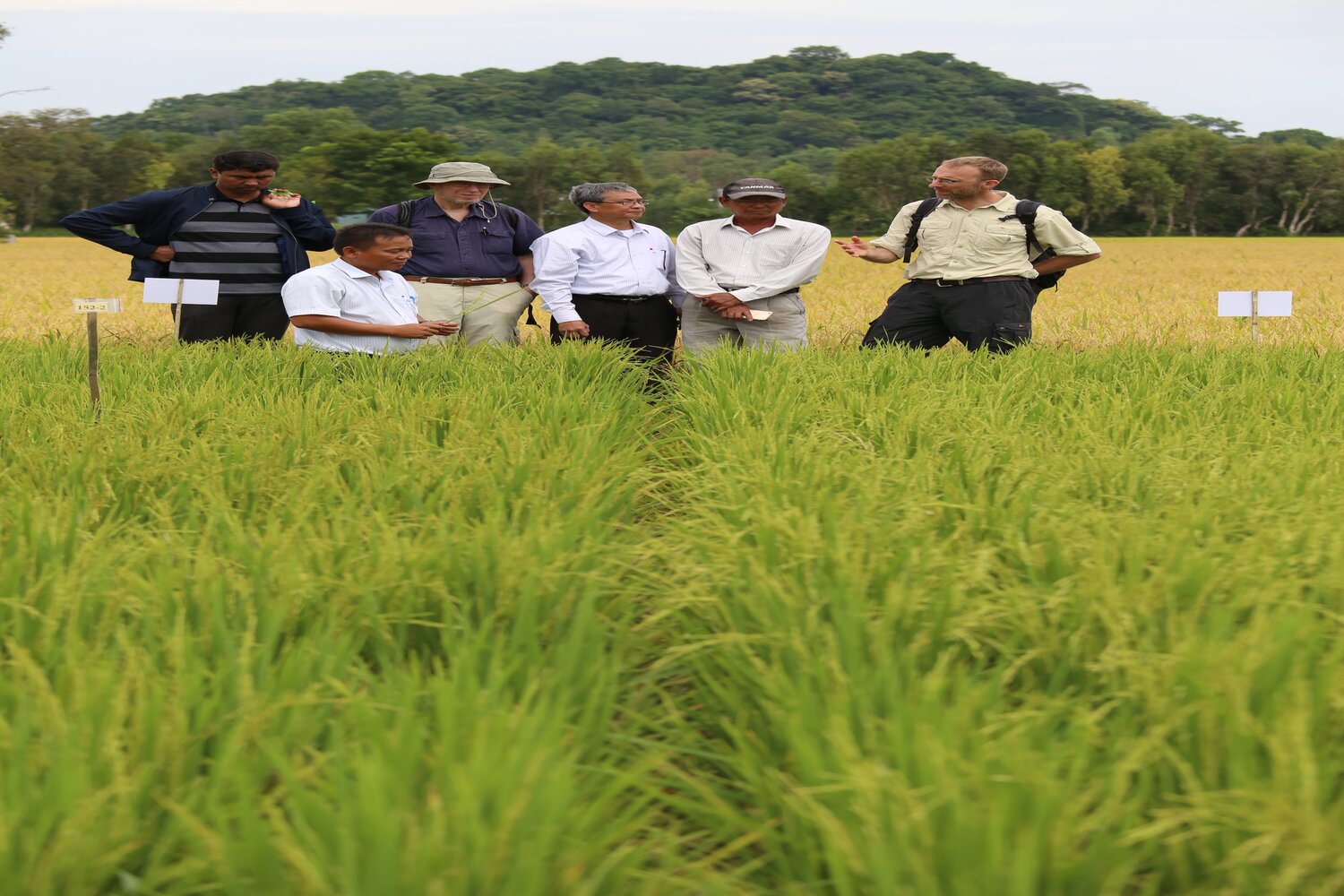
Left to Right: Venu Ramaiah, IRRI; Professor NH Tin from the Mekong Delta Development Research Institute; Åsmund Bjornstad, NMBU; Professor HQ Tin from the Mekong Delta Development Research Institute; farmer-breeder Mr. Tran Thanh Hung; and Ben Kilian, Global Crop Diversity Trust, examine the Nui Voi Seed Club’s on-farm trials in the An Giang province, where farmers have selected the most promising lines of their first harvest, based on heat-resistance, number of panicles, resistance to blast disease and short-cycle duration. Photo: L.M. Salazar
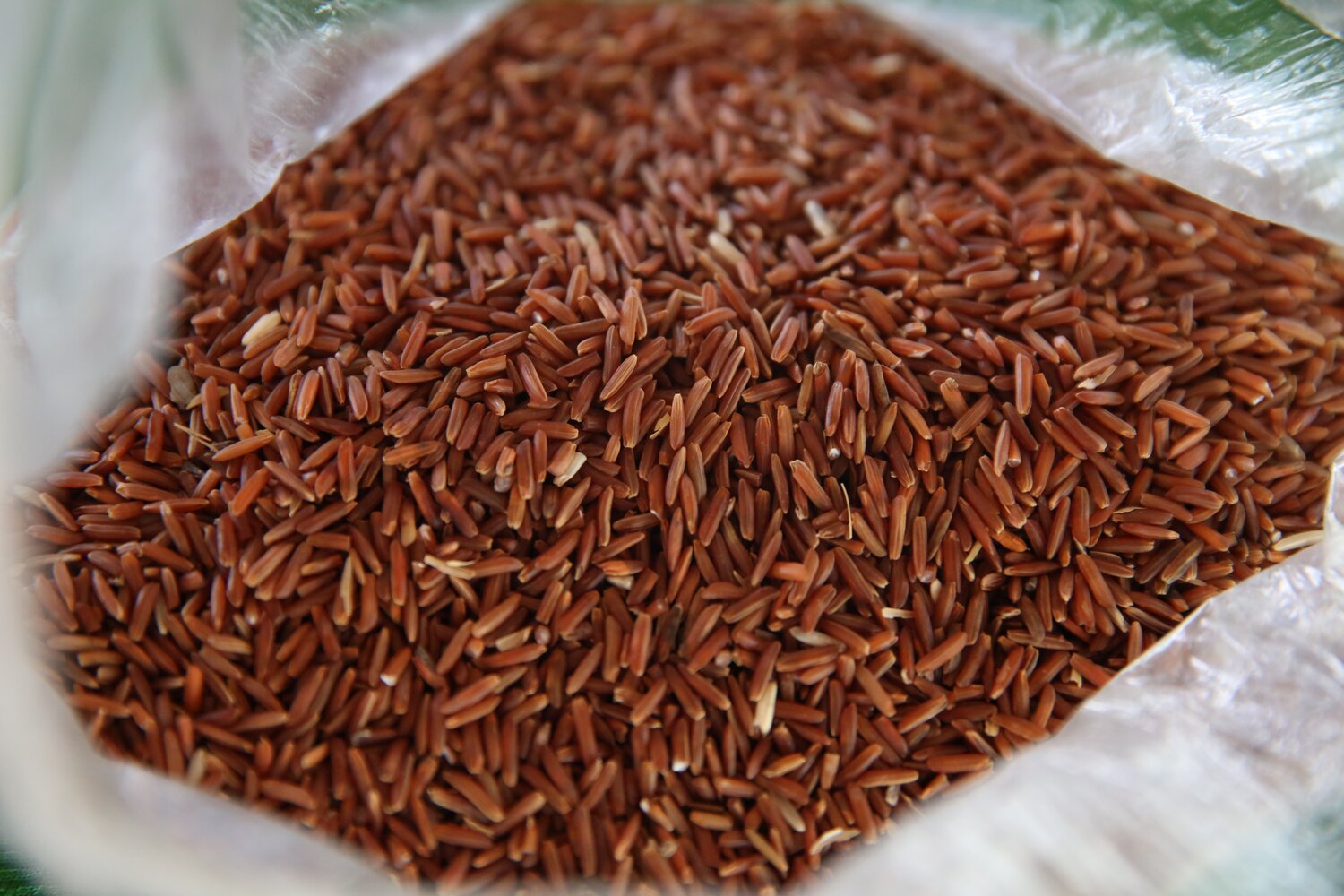
Almost two-thirds of the world’s population depend on rice as part of their daily sustenance. In Vietnam’s Mekong Delta, rice is harvested two or three times a year, and 80% of the 17 million people who live there are engaged in rice cultivation. During a recent Crop Wild Relatives visit, Crop Trust, IRRI and NMBU representatives consumed it steamed, puffed, in flakes, as noodles, as wine, to mention just a few of the ways the Vietnamese enjoy this staple crop. Photo: L.M. Salazar
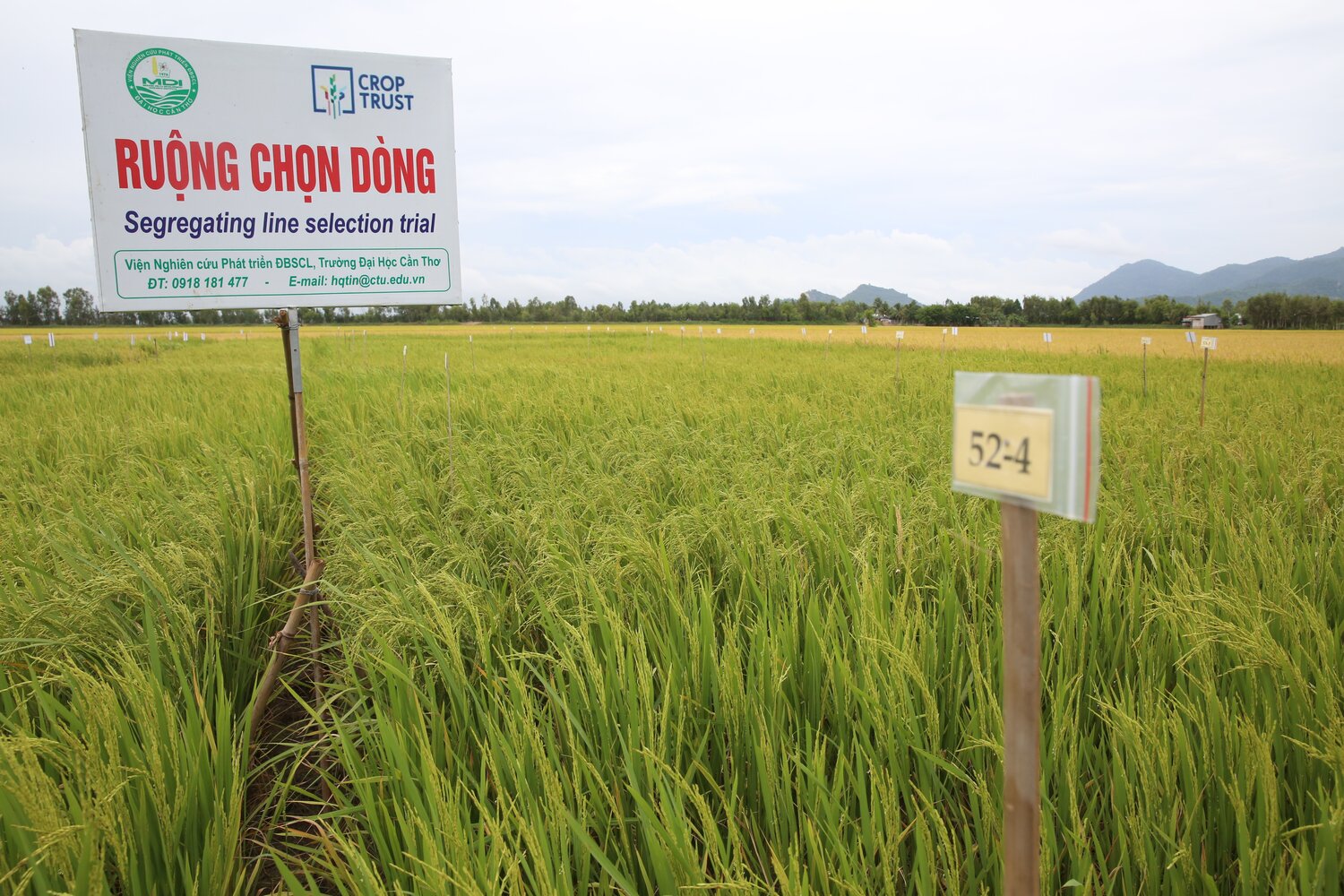
The “Participatory Evaluation of CWR introgressed genetic resources in rice in the Mekong Delta, Vietnam” is one of 19 pre-breeding efforts (100+ partners in 45 countries) which form part of the Crop Wild Relatives Project “Adapting Agriculture to Climate Change: Collecting, Protecting and Preparing Crop Wild Relatives,” funded by the Norwegian Government, and coordinated by the Crop Trust with the Millennium Seed Bank, Kew. Photo: L.M. Salazar
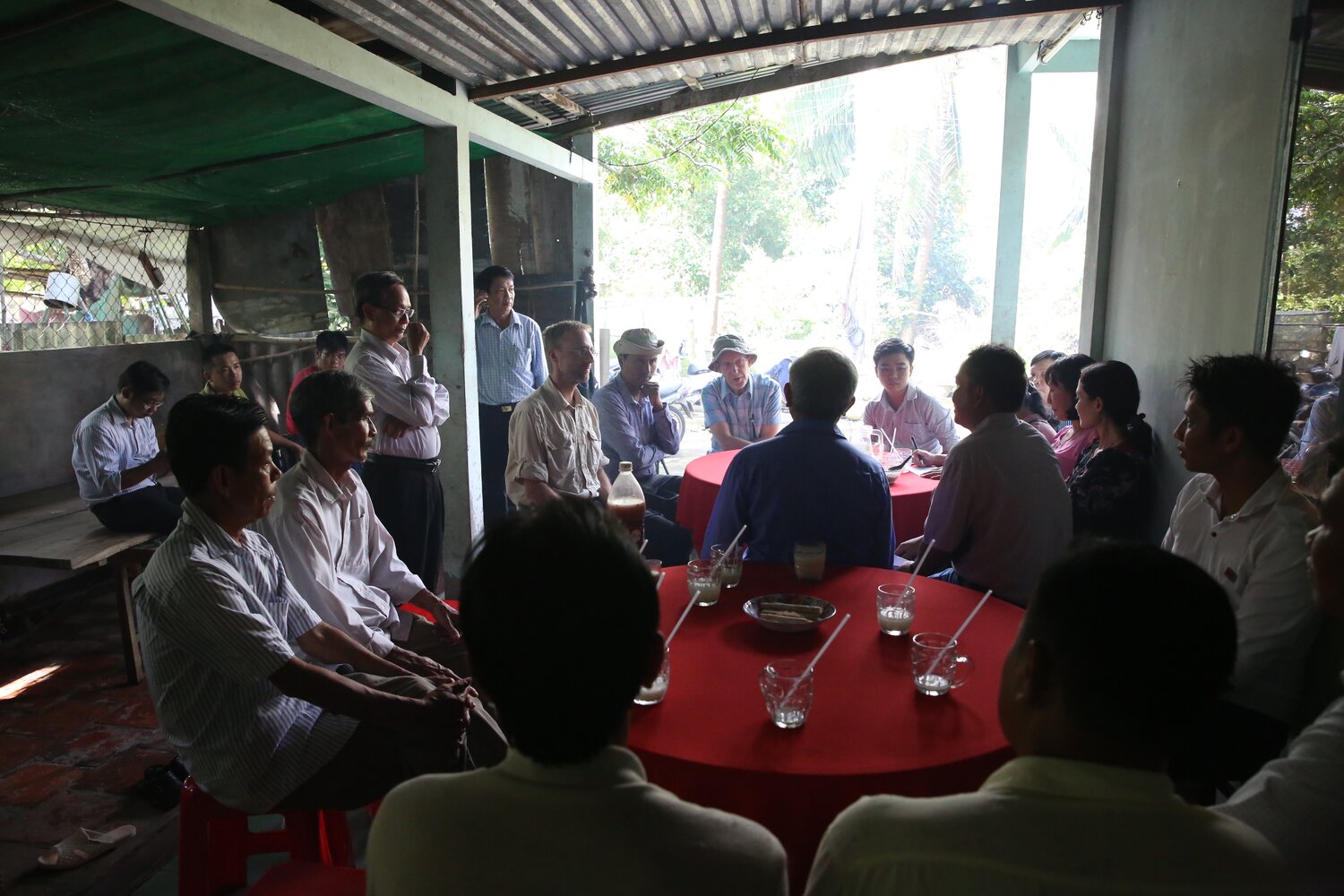
Ben Kilian, Senior Scientist at the Crop Trust, accompanied by Venu Ramaiah, Genebank Manager at IRRI, and Åsmund Bjornstad, from the Norwegian University of Life Sciences: NMBU, travelled to the Hau Giang province of the Mekong Delta, where they met with members of the Long Binh Seed Club, one of 13 farmer groups who, under the Crop Wild Relatives Project are evaluating wild rice-introgressed lines. Photo: L.M. Salazar
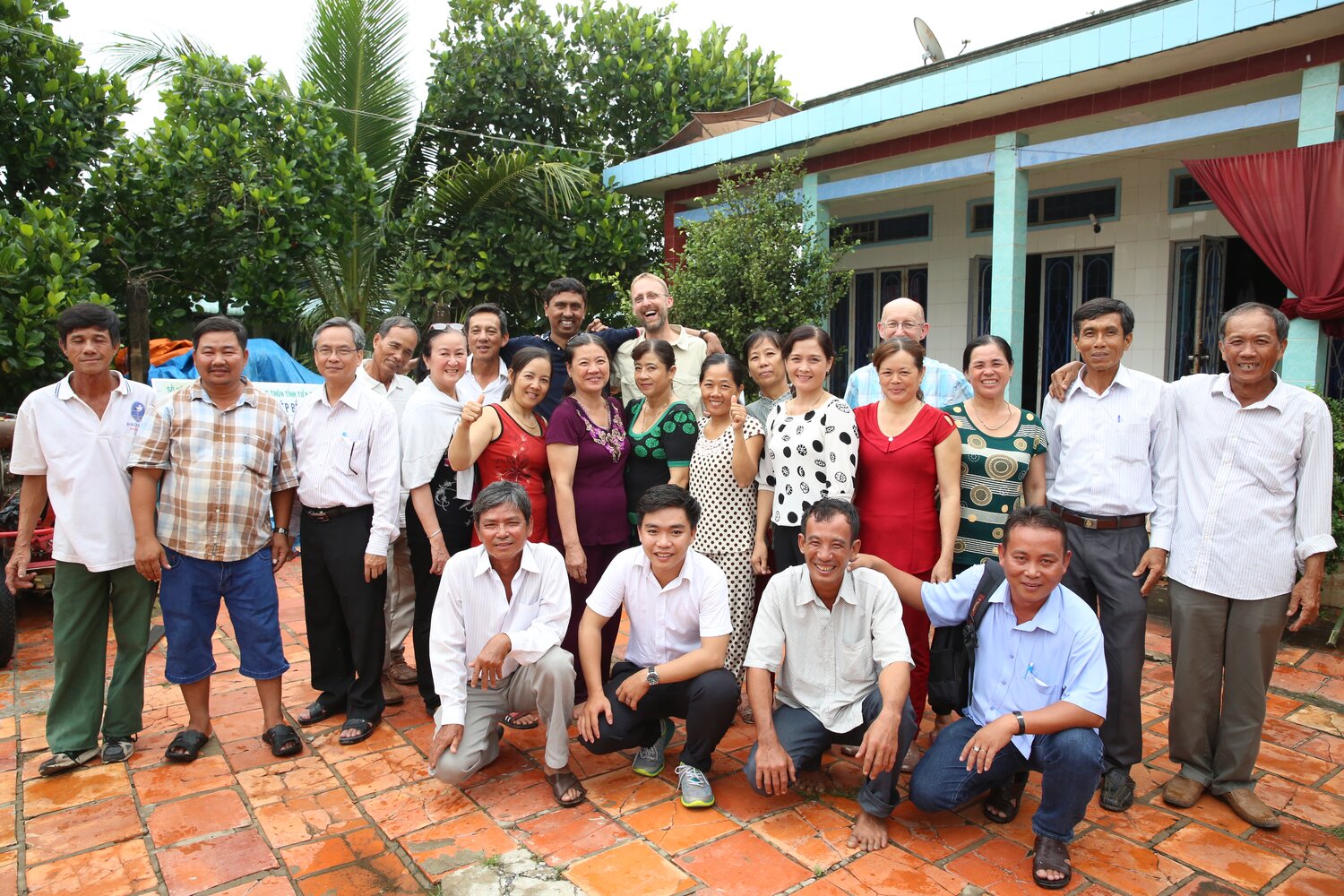
On our last day in Vietnam, and after visiting the fourth on-farm rice trials, Ben Kilian, Senior Scientist at the Crop Trust; Venu Ramaiah, Genebank Manager at IRRI; and Åsmund Bjornstad, from the Norwegian University of Life Sciences: NMBU, pose with our Crop Wild Relatives partners from the Mekong Delta Development Research Institute, Can Tho University, and members of the Hau My Trinh Seed Club in the Tien Giang province. Photo: L.M. Salazar
We thank Professor HQ Tin, and his colleagues, Dr. Nguyen Hong Tin, and Mr. Nguyen Huu Loi, for hosting us. And also thank our travel companions, “Venu” Ramaiah, Genebank Manager at IRRI, and Åsmund Bjornstad, from the Norwegian University of Life Sciences: NMBU, for joining us and contributing to this ongoing effort.
* * *
The Crop Wild Relatives project is generously funded by Norad.
All plant genetic materials collected and developed, including accompanying data, under the Crop Wild Relatives Project is shared under the terms of the Standard Material Transfer Agreement (SMTA) within the framework of the multi-lateral system of the FAO Plant Treaty.
Categories: Crop Wild Relatives, Rice, Food Security
